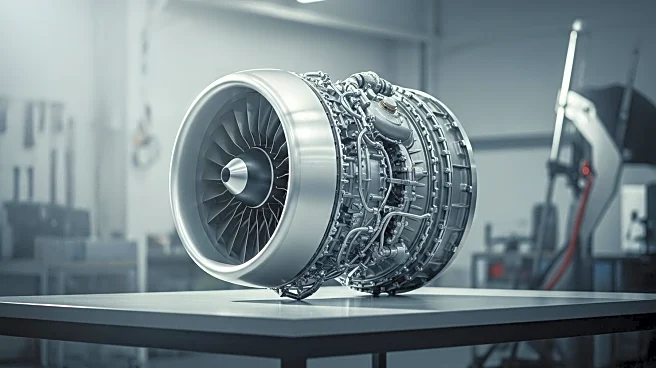What is the story about?
What's Happening?
Lufthansa is undertaking a strategic initiative to achieve €200 million ($234.8 million) in annual savings by digitalizing its technical operations and restructuring certain engineering and maintenance functions within Lufthansa Technik. The initiative is centered around the use of AMOS, a maintenance, repair, and operations (MRO) software employed by all Lufthansa Group airlines. The company has already 'insourced' over 300 positions from Lufthansa Technik Line Maintenance. By utilizing AMOS and electronic technical logbooks, Lufthansa has transitioned to a paperless system, enabling the use of artificial intelligence (AI) and digitalization to further cut costs. This includes innovations such as using cameras and AI for ramp checks, which traditionally required technicians to physically inspect aircraft tires and oil levels.
Why It's Important?
This move by Lufthansa is significant as it highlights the growing trend of digital transformation within the aviation industry, particularly in MRO operations. By leveraging technology, Lufthansa aims to enhance operational efficiency and reduce labor costs, which could set a precedent for other airlines seeking similar efficiencies. The initiative not only promises substantial cost savings but also reflects a shift towards more sustainable and streamlined operations. This could potentially lead to a competitive advantage in the airline industry, where cost management is crucial. The reduction in manual labor for routine checks also suggests a shift in workforce dynamics, potentially impacting employment within the sector.
What's Next?
Lufthansa plans to continue seeking efficiencies by offshoring certain engineering functions, a process that has already commenced. Additionally, all airlines within the Lufthansa Group are now utilizing a single Continuing Airworthiness Management Organization (CAMO), which is expected to reduce complexity and create synergies across the group. As the digitalization process progresses, further innovations and cost-saving measures are likely to be explored. The success of this initiative could influence other airlines to adopt similar strategies, potentially leading to widespread changes in MRO practices across the industry.















